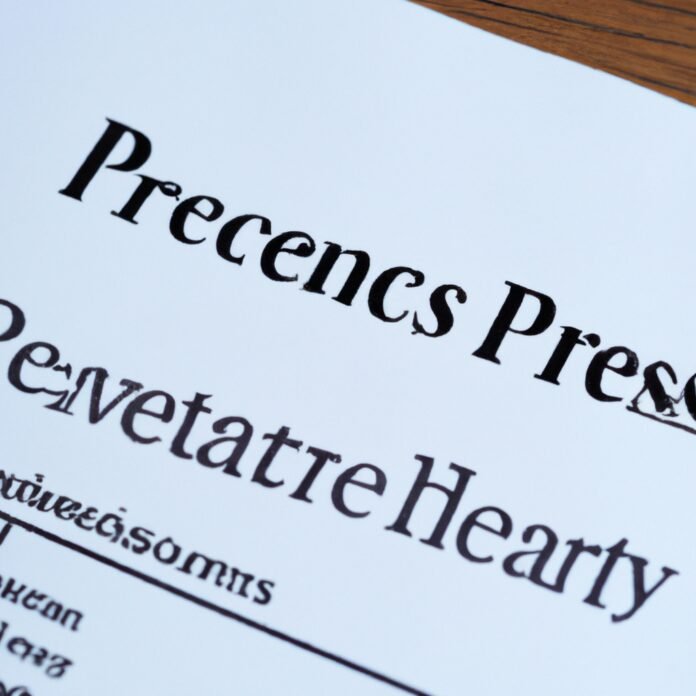If you’re a man with an interest in staying healthy, then you need to take a proactive approach when it comes to screenings. There are many essential health checks for men that can alert you to potential health problems before they become more serious. Learn more here about why proactive screenings are so important and the most common screenings men should be getting.
1. Essential Health Checks for Men: The Benefit of Proactive Screenings
It’s a fact of life that men, like women, become more prone to health problems in older age and screenings are essential to maintain overall wellbeing. But in modern society, it’s often easy to prioritize other parts of life ahead of health, and fall victim to the ‘if it isn’t broken, don’t fix it’ mentality. Men should instead take a transformative and proactive approach to health maintenance and get essential health checks regularly.
Here are some common essential health checks men should get done:
- Heart health and cholesterol checks
- Sexual health screening
- Colonoscopies to check for colon cancer
- Tests for prostate health
- Mammograms
- Regular Skin Cancer checks
These are, of course, only some of the most common tests and screenings men should be considering. Beyond this, it’s also important to recognize any changes in mood or symptom and treating it accordingly. Dental checks, hearing and vision tests, flu vaccinations, and mental health checkups are all important too.
An individual’s healthcare is, first and foremost, an individual responsibility. To stay in optimum health, it’s important to remember that prevention is better than cure in many cases, so don’t shy away from regular checkups, even if you feel healthy. Taking proactive steps to maintain your health is a habit you won’t regret.
2. Unveiling the Role of Proactive Screenings in Male Health
Proactive screenings are an effective way for men to take charge of their health and reduce the risk of developing many deadly diseases. Though many men often ignore scheduled doctor visits, proactively scheduling screenings and tests can make all the difference in maintaining long-term health.
The Benefits of Proactive Screenings for Men
– Screenings greatly increase a man’s chance of detecting a health issue in its early stage before it develops further.
– Proactive screenings can identify cancers and other diseases that may not have noticeable symptoms, providing an opportunity to begin treatment early on before the condition worsens.
– Many diseases and conditions, such as hypertension, can be managed through lifestyle changes such as diet and exercise when caught in the early stages.
The Types of Screenings for Men
The type of proactive screenings depend on each individual man’s health and age. Common screenings for males include:
- A complete physical examination to check vitals such as lung and abdominal health
- Various tests such as blood and urine tests to detect cholesterol levels and diabetes
- Vision and hearing tests
- Tests to detect prostate cancer
- Screenings for sexually transmitted diseases
- Cardiac stress tests to assess heart health
By understanding the many benefits of proactive screenings, men may be more likely to take charge of their health and live longer, healthier lives.
3. Avoid the Unforeseen: Uncovering Why Early Detection is Key
For most, the thought of cancer evokes fear. The fear of not knowing if, when, or how cancerous tumors may develop can be paralyzing. Uncovering why early detection is key helps to remove some of the fear around cancer by providing knowledge of when and how to search for it.
- Knowledge is Power. When it comes to cancer, being armed with knowledge can mean the difference between a positive and negative outcome. Understanding how tumors form and how to detect them provides the roadmap to weeding out cancer earlier on. While the majority of cancer types require screening or visits to a specialist, in some cases, lifestyle changes may help reduce the risk or delay the onset of cancer.
- Recognize the Symptoms. While the signs and symptoms of cancer depend on the type, many have overlapping characteristics. Being aware of the common signs and symptoms – from persistent fatigue to visible growths – can alert when to seek medical attention and potentially catch cancer at its early stages.
- Take the Time for Testing. While the majority of us would prefer to believe that not much will ever go wrong with our health, prevention plays a larger role than we often think. Making it a priority to schedule regular screenings and tests may help reduce the risk of developing undiagnosed cancer. From full-body scans to mammograms and biopsies, prioritizing health begins with recognizing the importance of testing.
Moreover, early detection provides the opportunity for more effective treatment options and increases the chance of successful recovery. However, if cancer is caught at its late stages, the outlook isn’t as positive. Should a cancer diagnosis occur, reaching out to a cancer specialist as soon as possible can provide insight on the best treatment plan.
No one wants to walk the cancer journey, however, understanding the importance of early detection makes a difference in how it’s ultimately undertaken.
4. From Cardiovascular to Mental Health: Making Sense of Screening Types
It’s essential for everyone to follow a regular health-check schedule to ensure their bodies are functioning properly. But there is much more beyond sticking to a regular physical. There are more specialized screenings designed to evaluate different aspects of our health, some of which are likely not a part of your typical physical.
- Cardiovascular Screening
This type of health-check can include tests to measure electrocardiogram and monitor blood pressure, as well as testing cholesterol, triglycerides, and hemoglobin A1C. A cardiovascular screening can also include a cardiac stress test focusing on how the heart reacts when put under strain. - Diabetes Screening
Diabetes screenings involve comprehensive testing to determine how efficiently insulin is being used to control a patient’s blood sugar levels. Common tests typically involve measuring fasting glucose, oral glucose tolerance tests (OGTT), hemoglobin A1C tests, and various other tests. - Mental Health Screening
Mental health screenings are assessments that measure mental health symptoms. They are usually self-reporting and involve answering questions about feelings and behaviors. Mental health screenings are used to identify signs of mental health conditions such as depression and anxiety.
No health-check plan is complete without an emphasis on all-around health. Preventative care should go beyond just monitoring physical conditions. It’s important for everyone to devote time to assessing mental health, as it often tends to be overlooked. Regular health check-ups utilizing the screenings described above, can help a person keep an eye on their overall well-being now and into the future.
5. Deciphering the Complexity of Early Detection and Health Maintenance
Early detection is an important tool to help maintain health and security. Yet, deciphering the intricacies of forecasting the health risks associated with an individual and acting on and recognizing the signs of a problem can be difficult even for the most experienced healthcare practitioner.
In order to unravel the complexity of early detection and health maintenance, the first step is understanding the range of risk factors and warning signs. This may include:
- Analyzing blood tests: Blood tests can offer indications of various health problems and alert healthcare practitioners to the development of long-term health issues.
- Sleep tracking: Poor sleep patterns can have an adverse impact on health. By tracking and assessing sleep quality and cycles, health professionals can alert individuals to changes in the quality of their rest.
- Examining diet: Keeping a check on caloric intake and the nutritional content of meals can uncover poor diet choices that may be damaging to health.
It’s also important to identify and recognize the symptoms of potential health issues which could indicate the onset of a problem. Early detection allows healthcare practitioners to prescribe treatment that could prevent and/or reduce the severity of an issue. Some potential warning signs to look out for include:
- Extreme tiredness: Severe fatigue and sleepiness that persists for extended periods may suggest an underlying medical condition.
- Unexplained weight loss/gain: Fluctuating weight, particularly when sudden, can be an indicator of a health issue.
- Change in appetite: Unexpected alterations in appetite could be an indication of hormonal or cardiac problems.
Ultimately, takes persistence, knowledge and dedication. It is only through careful examination and attention that accurate conclusions can be reached.
Taking proactive steps to ensure your health doesn’t have to be hard – with these essential health checks, you can make sure to keep your body feeling balanced and strong! Staying healthy can be a simple way to boost your outlook and general wellbeing so get proactive and enjoy the results!




